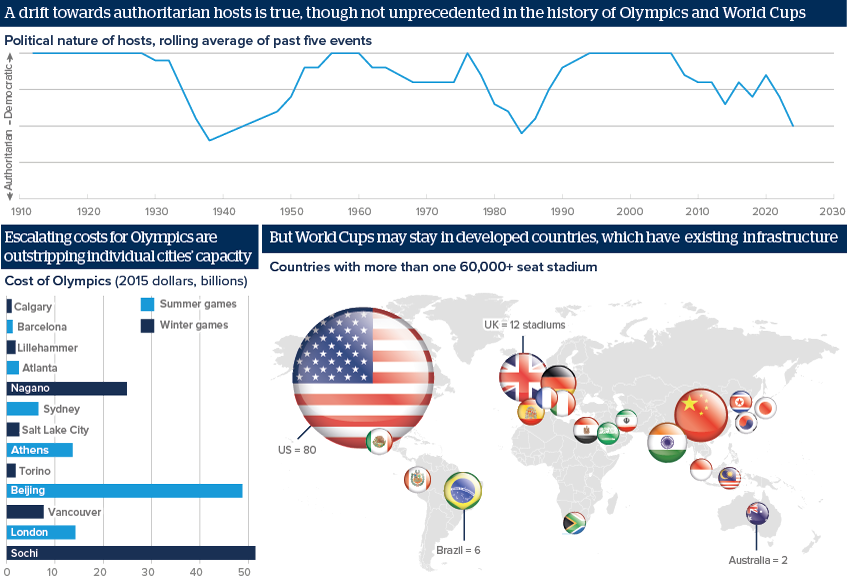Local voters will drive global games to hard-line host
Concerns rise that democracies will lose out on staging Olympics and World Cups

Source: WorldStadiums.com, Oxford Analytica
Outlook
The 2022 Olympic decision came down to China and Kazakhstan, after bids from Poland, Norway and Sweden were withdrawn due to local opposition; Boston has withdrawn its 2024 summer bid. Along with the next World Cups, controversially chosen to be played in Russia and Qatar, it appears that major sporting events can only be held where local interests have little avenue into policy-making.
However, that may be the wrong framework. The escalating costs of the Olympics means that the games are becoming 'nationalised', held where the national government will accept the burden. World Cup selection has been more shaped by FIFA's internal dynamics and informal continental rotation, as many developed countries could host without undue burden. The United States, for example, could host six World Cups simultaneously.
Impacts
- Internal governance reforms shifting the costs to the International Olympic Committee would mitigate cost concerns of local governments.
- Barring this, only the largest democratic cities, such as Paris, which can assume a post-games legacy for venues, will see local support.
- However, they must compete against the 'prestige premium' authoritarian governments are willing to pay for international attention.
- Multinational corporate sponsors must increasingly weigh reputational risk against market opportunity.